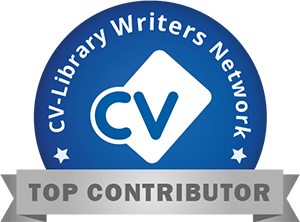Employer Engagement
- Decision Making Skills. Are We Expecting Too Much of Teenagers?

Decision Making Skills. Are We Expecting Too Much of Teenagers?
Friday 19th July 2019
This is an updated version of a 2016 blog
The Challenging Triumvirate
Day after day we hear more and more organisations, backed by Government policy, calling for employer engagement in education. We have the CEC (Careers and Enterprise Company) whose sole purpose is to act as a conduit between business and education and we have a schools system which is still struggling with the statutory duty to provide careers services to their students. How does this affect young people’s decision making process?
The reality
Ofsted, in it’s 2013 report Going in the Right Direction found that two thirds of schools were not meeting the then less stringent statutory guidance
The Government have updated it’s Statutory Guidance for Schools on a yearly basis since 2013, each version becoming more and more detailed.
The report, Mapping Careers Provision in Schools and Colleges in England, commissioned by the DFE in September 2015 found that
- Only two thirds of schools are meeting their statutory duty to provide access to independent careers guidance by securing access to external careers guidance
- A scary 16% of schools didn’t provide any access to careers education at all.
Whilst this has improved since the introduction of the careers strategy and the Gatsby benchmarks, we're still a long way from having good quality careers provision in all schools.
In response the Government has put a whole raft of ideas into place, including:- DWP advisers in schools; Mentoring programs; The CEC itself and of course revised statutory guidance which is was updated in 2018. However, I”m concerned that one vital point is being missed.
How do young people make decisions?
Erik Erikson, the famous decision making psychologist in his work psychosocial stages of development, put forward an idea identity vs role confusion.
Identity is essentially constructed of how one comes to define oneself across a number of spheres, including socially, emotionally, sexually and, eventually, vocationally. It may also include race, ethnicity and ethics. Erikson defined identity as “a subjective sense of invigorating sameness” similar to philosopher John Locke’s concept of psychological continuity.
Freud said – What blog about psychological aspects of careers would be complete without a quote from this man?
That this process of “identification” is inevitably predicated on an emotional tie with the individual. Not surprisingly, then, parents again play a determinant role – but others may as well.
In short many young people try on different roles and rely heavily on role models – especially parents, but may draw upon a wide pool of role models, mentors, teachers, friends, gang leaders, celebrities etc. So how do you ensure that your students choose appropriate role models?
Another developmental theorist, James Marcia, set forth the notion that the so-called “identity crisis” arises when young people become cognitively capable of considering whom they want, or need, to become in order to handle the challenges of adulthood.
So the challenge for schools is helping young people undertake the sifting of all the information that these employer engagements give them in order to define not only who they, the young person, are aspiring to be but also what information they have at their fingertips is appropriate to them.
How do schools help young people process this information AND make the right decisions?
Advice & Guidance
Making the right decisions
The provision of trusted sources of advice is paramount in the process – Many of the sources of advice that students will come into contact with may be inaccurate. I’m not suggesting deliberate mendacity here, just well meaning people being a little out of date or misinformed. Often people don’t like to admit they are not sure they know something so will present an ‘opinion’ as fact or rely upon memory which may or may not be correct. Ensuring students have access to a qualified careers adviser ensures pupils have access to up to date and correct information. The CDI is the professional body for careers advisers and you can search for highly qualified careers advisers on their website. Everyone on their register is qualified to Level 6 or above and has an obligation to undertake CPD on a regular basis as well as subscribing to the CDI code of ethics which commits them to putting their client (the young person being advised) first.
Information
Without correct information students may also rely on unreliable sources of information. For example an employer who is out of date; a teacher that is keen to boost the size of their option classes or not be in possession of the full facts e.g. may not know about the range of local employers as they have only been exposed to a single employer who is keen to recruit and doesn’t want students to know about his rivals. Careers advisers are excellent resources of reliable information in schools and often help support the teaching staff by ensuring up to date information is disseminated effectively.
Education
As with a building, careers decision making needs firm foundations. Without an excellent careers education programme by ensuring students are proficient in the foundations of career management skills such as how to make a decision, how to identify reliable information etc they will forever be at the mercy of the information providers they are exposed to.
So to answer my question do we expect too much of our students decision making skills. Yes I think we do. As educationalists we need to be realistic about the psychological, social and economic constraints of our society and help them develop the skills they need to survive in today’s world..





